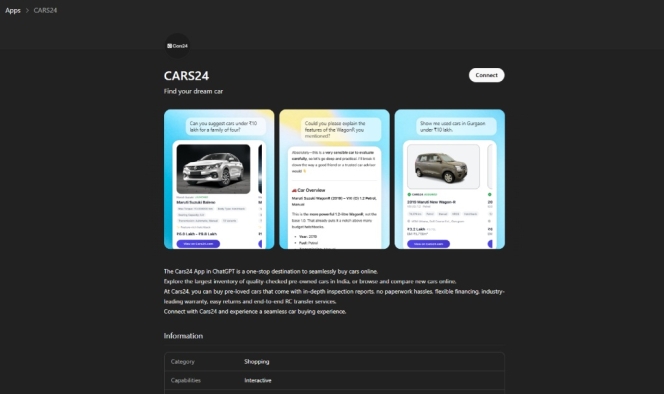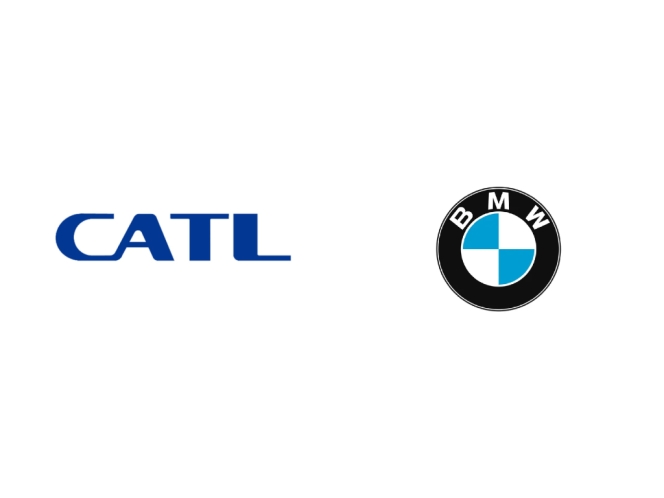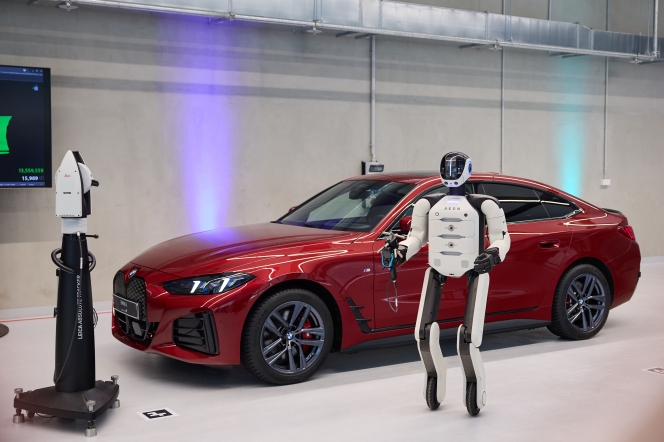61st SIAM Annual Convention
- By Bhushan Mhapralkar
- October 08, 2021

Announcing that Prime Minister Modi’s message was motivating for the Indian auto industry to work together towards new age technology, world class manufacturing, and next generation infrastructure, Kenichi Ayukawa, President, SIAM and MD & CEO, Maruti Suzuki, in his address during the opening session, said that there was a need to achieve sustainable and productive growth with quality and safety, and protect our environment, resources and raw materials. Stressing on the need for focused efforts, Ayukawa mentioned that SIAM and ACMA have together worked out a localisation roadmap with a target of about 15 to 20 percent further localisation in the next 2 to 5 years. Revealing that SIAM has prepared an approach paper for long term regulation roadmap that takes care of all aspects and gives clarity on future investments, Ayukawa San said that the auto industry is working on new powertrain technologies. He appreciated the government’s announcement of the scrappage policy and PLI scheme.

Amitabh Kant.
Recognising the contribution of the Indian automobile industry to the Indian economy, Dr Mahendra Nath Pandey, Union Minister of Heavy Industries, Government of India, said that his ministry is working consistently for the growth of the automotive sector. Acknowledging the rise in localisation supported by the PLI initiatives of government, Dr Pandey said that these efforts would make the industry more robust. He stressed on the need to develop EV charging infrastructure as well as manufacture quality products that would help the Indian automobile industry to be regarded as the best in the world. T V Narendran, President, CII and MD, Tata Steel Ltd, in his address, mentioned the need for the right policy support to make India a five-trillion-dollar economy by 2025-26. It is important that the Indian manufacturing sector is strong. He called on the auto industry to focus on six key areas – electric vehicles, circularity, urbanisation, resilient supply chain and an ability to reap in functionality and embed sustainability, going forward.

R C Bhargava.
In his speech, Amitabh Kant, CEO, NITI Aayog, said that the future direction of the auto industry is in the area of shared, connected and electric mobility. He opined that there are four prominent growth drivers that the industry should focus on. These include the expansion of investment in R&D, more focus on innovation in small format mobility segment, establishment of massive charging infrastructure across the country and provision of export impetus to the industry. Kant said that EV should be an integral part in every OEM’s plans. Road Transport Minister Nitin Gadkari spoke about the government’s aim to increase the contribution of the automotive sector towards the nation’s GDP. Currently, the sector contributes roughly 7.1 percent towards the GDP, he said. Revealing that the government would like to see the contribution rise to 12 percent, the union minister stated that it would amount to a huge step towards making India a five-trillion-dollar economy. Expressing gratitude to the dignitaries for their presence, Vipin Sondhi, Vice President, SIAM and MD, Ashok Leyland Ltd, drew attention towards the effect of Covid-19 on sales.

Appreciating the efforts of the Ministry of Heavy Industries to create world-class testing and R&D infrastructure in all the auto hubs of the country, he spoke about how the auto industry will take advantage of localisation, PLI scheme and EV charging infrastructure. These efforts, he added, will contribute to the government’s initiative of ‘Make in India’. In a session focusing on the outlook of the Indian auto industry and its role in the economic growth, Venu Srinivasan, Chairman and Managing Director, TVS Motor Company, and R C Bhargava, Chairman, Maruti Suzuki India Ltd., drew attention to the new policies introduced over the past few years. The duo stressed on the high taxation structure on automobiles and the mandatory insurance costs. These, they said, have hugely bumped up the pricing to make vehicles expensive. Srinivasan touched on two-wheelers being taxed at 28 percent despite being the most basic means of transport. This, he added, is almost equal to cars which are a luxury item. Opining that the prices of vehicles have risen over the past few years with the switch to BS IV and subsequently to BS VI, and the change in safety norms, R C Bhargava mentioned that mounting challenges have had an effect on the sales.

Venu Srinivasan.
Revenue Secretary Tarun Bajaj said that the government is open to discussing a change in Goods and Services Tax (GST) rates on automobiles. Seeking to know from the auto industry whether it is the GST rate on cars that is preventing the sector from growing, Bajaj questioned the reason behind SUV sales going up and not that of the cars in economic terms. Stating that the tax rates were higher in some states before GST came into force, he suggested the auto industry to examine in detail the reasons behind the dip in sales. Covid-19 and other factors could be at play, he reasoned. Bajaj called on the industry to keep pace with the changing technology.

Kenichi Ayukawa.
Cars24 And OpenAI Partner To Integrate AI into Automotive Commerce
- By MT Bureau
- March 02, 2026

Cars24 has announced a strategic partnership with OpenAI to deploy artificial intelligence (AI) models and agents across its business operations. The collaboration focuses on embedding AI into vehicle discovery, sales, financing and post-purchase engagement across all markets where the company operates.
Unlike traditional pilot programmes, the initiative involves the integration of OpenAI’s technology into production environments to manage high-volume workflows. The partnership aims to transition the platform from manual automation to systems that assist in decision-making and data retrieval.
Cars24 has already deployed OpenAI’s Enterprise APIs across several internal and customer-facing functions. According to company data, the integration has resulted in a 50 percent increase in support resolution through assisted troubleshooting and an 80 percent reduction in turnaround time for service workflows.
Current deployment statistics include:
- Customer Outreach: AI agents now manage 20 percent of outbound conversations.
- Internal Adoption: 85 percent daily active usage of ChatGPT Enterprise among the central workforce.
- Functionality: Teams utilise the tools for data analysis, code development, and the summarisation of operational cases.
- Accessibility: The Cars24 application is now available on the ChatGPT Store for conversational vehicle discovery.
The partnership is designed to reduce dependencies on manual processes in automotive transactions. By embedding models into core workflows, the company intends to shorten decision cycles for buyers and sellers. Future phases of the rollout will include expanding these AI experiences to additional languages and product lines.
Vikram Chopra, CEO and Founder, Cars24, said, “Automotive commerce is operationally heavy by nature with multiple checkpoints, fragmented information and high-consideration decisions. Over time, we’ve realised that incremental improvements aren’t enough; the system itself needs to become more intelligent. Our collaboration with OpenAI is a step in that direction. By embedding AI into core workflows rather than layering it on top, we can reduce manual dependencies, improve consistency and shorten decision cycles. We don’t see this as a short-term advantage, but as foundational infrastructure that will compound in efficiency and trust over the years.”
- Tata Technologies
- WITTENSTEIN High Integrity Systems
- WHIS
- Andrew Longhurst
- Software Defined Vehicle
- SDV
- Nachiket Paranjpe
Tata Technologies Partners WHIS To Advance SDV Development
- By MT Bureau
- March 02, 2026

Tata Technologies has announced a partnership with WITTENSTEIN High Integrity Systems (WHIS) to accelerate the development of Software-Defined Vehicles (SDVs). The collaboration involves integrating WHIS’s SAFE RTOS into Tata Technologies’ automotive software stack.
The integration is designed to assist original equipment manufacturers (OEMs) and Tier 1 suppliers in meeting functional safety standards, such as ISO 26262. The partnership focuses on the transition towards connected, autonomous, and electrified mobility by providing safety-certified architectures for complex vehicle ecosystems.
SAFE RTOS provides real-time performance and reliability, serving as a component within the Tata Technologies SDV platform. This allows for the development of software architectures that support the increasing centrality of software in vehicle design.
The partnership combines Tata Technologies' experience in automotive software with WHIS's embedded software solutions to address requirements for scalable and certified systems.
Andrew Longhurst, Managing Director, WITTENSTEIN High Integrity Systems, said, “Software is at the heart of the automotive industry’s evolution. Our partnership with Tata Technologies ensures that OEMs and Tier 1 suppliers can leverage SAFE RTOS to achieve the highest levels of safety and performance in their software-defined vehicle architectures.”
Nachiket Paranjpe, President – Automotive Sales, Tata Technologies, added, “By combining Tata Technologies’ expertise in automotive software development with WHIS’s proven safety solutions, we are empowering our customers to accelerate SDV adoption and deliver cutting-edge mobility experiences.”
CATL And BMW Sign Agreement On Battery Passport And Decarbonisation
- By MT Bureau
- March 01, 2026

CATL and the BMW Group have signed a Memorandum of Understanding (MoU) to expand cooperation on battery supply chain data exchange and decarbonisation. The agreement was finalised in Beijing during a visit by a German delegation including Chancellor Friedrich Merz.
The partnership focuses on pilot projects for cross-border data transfer under the Battery Passport framework. The companies will collaborate on carbon accounting methodologies and tools to calculate the carbon footprints of power batteries.
The initiative utilises Catena-X, a standardised automotive data ecosystem, to align technical standards and policy frameworks. By testing Battery Passport applications, CATL and BMW aim to meet China-EU regulatory requirements and establish global data standards for the battery industry.
The cooperation is intended to improve digital management and ensure compliance with EU market access regulations regarding green product competitiveness.
The strategic relationship between CATL and BMW began in 2012. Previous collaborations have covered battery production, research and development and supply chain sustainability. This MoU shifts the partnership from product-level cooperation to institutional coordination for electric mobility.
CATL stated its intention to continue cooperation with international partners to use technology for the global energy transition and the sustainability of the automotive sector.
BMW Group bringing Physical AI And Humanoid Robots To Europe
- By MT Bureau
- February 28, 2026

The BMW Group is accelerating the digital transformation of its manufacturing operations by embedding artificial intelligence deeply into physical processes. A central focus of this strategy is Physical AI, a concept that unites digital intelligence with machinery and robotics. This integration allows systems like humanoid robots to function effectively within live production environments. For the first time, this approach is being introduced in Europe through a pilot project at the company’s Leipzig plant, where humanoid robots will be tested in the assembly of high-voltage batteries and component manufacturing. This initiative builds on a previous deployment at the Spartanburg plant in United States, where valuable experience was gained and is now being used to refine and scale the technology.
Artificial intelligence is already embedded throughout the BMW production system, underpinning functions such as digital twins, AI-supported quality assurance and autonomous transport in intralogistics. A unified data architecture serves as the foundation for this intelligence, enabling real-time access to consistent and standardised information across all manufacturing locations. This infrastructure supports the deployment of digital AI agents capable of autonomous decision-making in complex environments. When these agents are paired with robotic systems, they give rise to Physical AI, which represents a significant evolution in production technology.
The company views humanoid robotics as a strategic addition to its automation portfolio. These robots are particularly suited to tasks that are repetitive, physically strenuous or present safety risks. By deploying them in such roles, the company aims to reduce physical strain on employees and enhance workplace conditions. To drive this forward, a Center of Competence for Physical AI in Production has been established to consolidate expertise and facilitate knowledge sharing across the organisation.
A structured process governs the evaluation of potential technology partners. Candidates are assessed against criteria related to maturity and industrial applicability, followed by laboratory testing using real production scenarios. Successful tests lead to limited deployments under actual factory conditions before advancing to full pilot phases. This methodology ensures that only thoroughly vetted solutions are integrated into series production.
The Leipzig pilot is being conducted in collaboration with Hexagon, a longstanding partner specialising in sensor technology and software. Following theoretical and laboratory evaluations, an initial deployment of Hexagon’s humanoid robot, AEON, took place at the plant in December 2025. A second test phase is scheduled for April 2026, with the full pilot set to begin in the summer of that year. The robot’s human-like design allows for the attachment of various tools and grippers, making it adaptable for multiple tasks in battery assembly and parts manufacturing.
Earlier work at the Spartanburg plant provided critical insights into the practical application of humanoid robotics. In partnership with Figure AI, the robot Figure 02 was deployed in body shop operations, where it handled the precise placement of sheet metal parts for welding. Over 10 months, the robot supported the production of more than 30,000 vehicles, operating in 10-hour shifts and handling over 90,000 components. The pilot demonstrated that humanoid robots could perform high-precision tasks reliably and safely in a live production setting. It also highlighted the importance of early collaboration with teams responsible for IT infrastructure, safety and logistics. Seamless integration into the existing automation ecosystem was achieved through standardised interfaces, and employee reception was notably positive, aided by transparent communication from the outset.
The success of these initial deployments has paved the way for further collaboration. BMW and Figure are currently exploring additional applications for the next-generation Figure 03 robot, continuing to build on the foundation established in both United States and Europe.
Milan Nedeljković, Member of the Board of Management of BMW AG, Production, said, “Digitalisation improves the competitiveness of our production – here in Europe and worldwide. The symbiosis of engineering expertise and artificial intelligence opens up entirely new possibilities in production,”.
Michael Nikolaides, Senior Vice President Production Network, Supply Chain Management at BMW Group, said, “Our aim is to be a technology leader and to integrate new technologies into production at an early stage. Pilot projects help us to test and further develop the use of Physical AI – that is, AI‑enabled robots capable of learning – under real-world industrial conditions. The successful first deployment of humanoid robots at our BMW Group plant in Spartanburg in the USA proves that a humanoid robot can function not only under controlled laboratory conditions but also in an existing automotive manufacturing environment.”
Michael Ströbel, Head of Process Management and Digitalisation, Order to Delivery at BMW Group, said, “We are delighted to deploy a humanoid robot for the first time in a pilot project at a plant in Germany. Following evaluation by our Center of Competence for Physical AI in Production, tests were carried out in the laboratory and at Plant Leipzig at the end of last year. This year, our focus is on step‑by‑step integration into our production system to explore a wide range of applications. The emphasis is on researching multifunctional use of the robot in various production areas such as battery manufacturing for energy modules and component production for exterior parts. With Hexagon, we have found a proven long‑standing partner with a highly innovative approach to humanoid robotics for this project.”
Felix Haeckel, Team Lead CoC Physical AI for Production, said, “At our new Center of Competence for Physical AI in Production, we are pooling our expertise to make knowledge on AI and robotics widely usable within the company. In recent years, we have built up an international team of experts that, in addition to in‑house research and programming, is dedicated to the gradual integration of AI into the existing production system. At the same time, our team in Munich is driving its own robotics research to set up, support and further develop pilot projects in the field of Physical AI at our plants.”
Arnaud Robert, President of Hexagon Robotics, said, “We are very pleased to be working with the BMW Group to advance the use of humanoid robots in real‑world environments.”






Comments (0)
ADD COMMENT